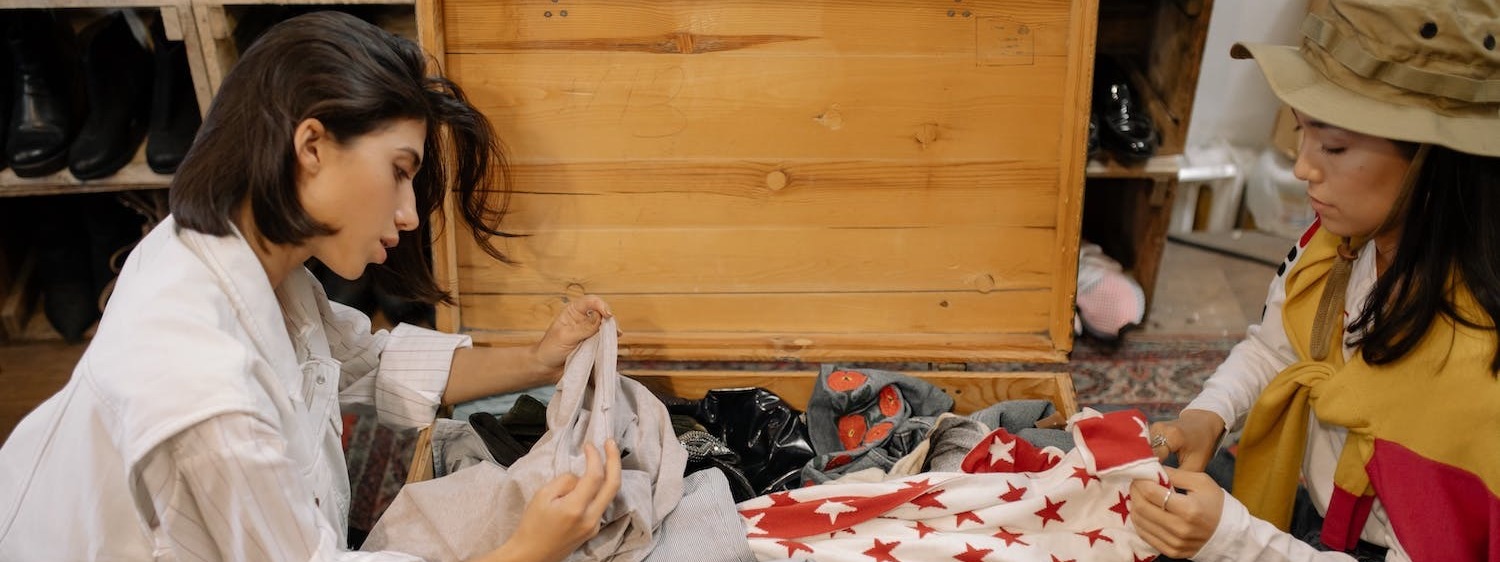Do I Have to Pay Tax When I Sell Second-hand Clothes Online?
Making an income from selling second-hand, vintage or retro clothing online is becoming increasingly popular, with many people starting it off as a hobby before finding that it gains enough interest to generate a regular income.
Selling clothes online - the tax implications
As with any other kind of business, online second-hand clothing retailers are generally required to pay taxes on their income. This applies whether you have your own website or sell through other platforms such as Etsy, eBay, Vinted and Depop.
The specific tax obligations can vary based on factors such as the business structure, the level of income, and the jurisdiction in which the business operates. To help you better understand your tax obligations, we’ve put together some key points to consider.
Remember: Whenever you sell items, you're responsible for complying with all applicable tax laws.
HMRC is cracking down on online clothing platforms
In case you haven’t seen the recent news, HMRC is planning on tightening regulations on individuals selling second-hand clothing online. As a result, websites such as eBay will be obligated to gather and disclose sellers' earnings data to HMRC from 1st January 2024.
This means that HMRC will be able to see an individual seller’s earnings and demand tax payments if suitable.
HMRC is focusing on regular sales rather than occasional items being listed, as it aims to identify patterns that indicate a business operation. However, a good rule of thumb is to proactively report all income in your self-assessment tax return rather than running the risk of being sent a sizeable tax bill further down the line.
Selling clothes online: What you need to know
Income tax
The business owner or owners are generally liable to pay income tax on the profits earned by the second-hand clothing business. Income tax rates and regulations may vary by country.
Value Added Tax (VAT) or sales tax
Depending on where you’re selling your items online, second-hand clothing businesses may be required to charge and remit VAT or sales tax on the sale of goods. In some cases, the sale of second-hand goods may be subject to reduced rates or exemptions.
Business structure
The business structure (such as a sole proprietorship, partnership, limited company etc.) can affect your tax obligations. Each structure has its own tax implications, and you as a business owner should be aware of the tax requirements associated with your chosen structure.
Record keeping
Keeping accurate and detailed records of income and expenses is crucial for tax compliance. This includes records of purchases, sales and any other financial transactions related to the business.
Tax deductions
Business expenses incurred in the operation of a second-hand clothing business may be eligible for tax deductions. This can include expenses such as rent, utilities, transportation, and costs related to acquiring inventory. This depends on how you run your business, so make sure to get in touch with our team for tailored advice.
Online sales
If your second-hand clothing business operates online, it may need to comply with specific tax regulations related to e-commerce. This can include sales tax collection and remittance requirements.
We're here to provide expert tax advice
Always remember that failure to comply with tax obligations can result in penalties and legal consequences. Consulting with a tax professional at TreyBridge Accountants will help you to understand and meet all relevant tax requirements, ensuring total compliance and smooth business operations.
Contact us today to schedule a consultation
If you're looking to improve and grow your business in 2024, it's time to have a chat with our team of accountants, payroll managers, tax planning specialists, credit control agents and dedicated business advisors. To get started, call our Northern office on 01482 235575, our London office on 0207 885 0605, or fill in the contact form below.
Tagged as: Self-employment, Tax
Share this post:

